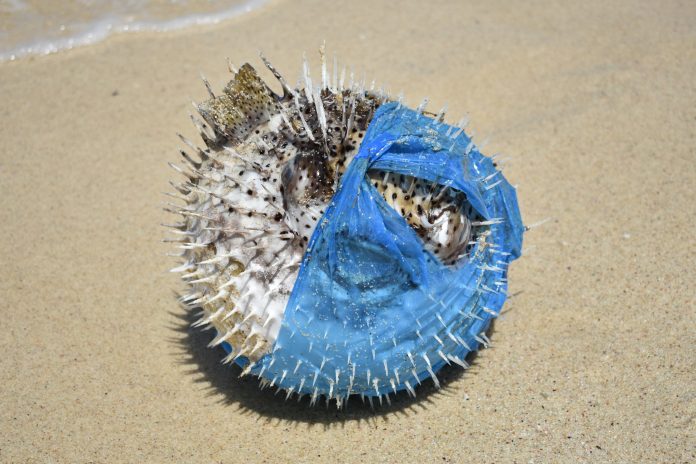The global plastic waste situation will receive an investment of £20 million via UKRI – research partnerships will begin with 11 countries
According to the National Geographic, over the next ten years 22 million tonnes of plastic waste will enters the ocean. This is the figure calculated after adding in all the Government promises across the globe, which if upheld, can only do this much.
In a report published in Science Advances, the US was found to be the biggest culprit of plastic waste, producing around 42 million tonnes of it in 2016 alone. Currently, less than 10% of American plastic waste is actually recycled and the US ships half of the recyclable plastic to China and other developing countries. In 2018, China finally stopped buying plastic scrap and this number lessened somewhat.
However, the rest of the developing nations who have their own plastic problems are struggling to handle them – not just due to the import of plastic scrap. The UKRI is attempting to fund a global reckoning against plastic waste, with a fresh £20 million investment into five projects across 11 countries. This will result in five projects across a programme, with China, Chile, Egypt, Ecuador, India, Indonesia, Peru, Malawi, Sri Lanka, Tanzania and Vietnam.
The Reducing the Impacts of Plastic Waste in Developing Countries (GCRF Plastics) programme is supported via the Global Challenges Research Fund (GCRF), a £1.5 billion investment announced in 2015 to support research that addresses challenges faced in developing countries.
What are some of the projects?
1. “Hope spots” in Indonesia
The University of Plymouth working to create “hope spots” in Indonesia, which will help the country to tackle the global plastic waste problem via their own tourist hotspots. Researchers at Plymouth will work with colleagues at Brunel University London, the University of Leeds, five Indonesian universities, the Indonesian Institute of Science and SYSTEMIQ.
The Indonesian government announced in 2017 that it hopes to reduce the amount of marine plastics it produces by 70% by 2025. Across the country, only 39% of waste is collected for proper disposal and around six million tonnes of waste a year is either burnt or dumped in the environment.
They will research and model the flow of plastic waste across the country, and develop case study sites in the tourist hotspot of Bali and the fishing port of Pasuran to use as templates for tackling the ongoing problem.
2. Adaption on the Cape Flats
The project is Water and Fire: Enhancing Capacity and Reducing Risk through 15 ‘Best Bets’ for Transformative Adaptation with Vulnerable Residents on the Cape Flats.
The 3-year research project is a partnership between the University of Stirling, the University of the Western Cape, the University of Cape Town, the Sustainable Livelihoods Foundation (NPC), and risk-affected residents of the Cape Flats of South Africa. Dr Dalene Swanson said: “We are delighted to welcome our four new postdoctoral research fellows who will support this global challenge-led project.
“Recurrent fires, drought and water shortages, and large-scale flooding, are escalating socio-environmental hazards exacerbated by climate change, which disproportionately impact on excluded communities in South Africa.
“In an age of government austerity and economic strain, township residents have been forced to become increasingly self-reliant and resourceful. By working alongside and understanding community and individual responses to climate-change induced crises, this project aims to co-develop a set of resilience actions aimed at mitigating socio-environmental disaster risks, especially those relating to drought, floods, and fire, and for which poverty, inequality, crime and violence exacerbate disaster risks.”
3. Waste management in Tanzania and Malawi
The research will focus on waste management practices in Tanzania and Malawi to explore the sources and economic and behavioural drivers of pollution.
Professor Richard Quilliam, of the University’s Faculty of Natural Sciences, is Principal Investigator on the new project, Sustainable Plastic Attitudes to Benefit Communities and Their Environments (SPACES). It will collaborate together the University of Dar es Salaam (Tanzania); University of Malawi, The Polytechnic; Liverpool School of Tropical Medicine; Malawi-Liverpool Wellcome Trust Clinical Research Programme (Malawi); University of Strathclyde; Durham University; and Heriot-Watt University.
Professor Quilliam said: “In most sub-Saharan African countries, municipal solid waste is collected in a mixed state and is either burned or dumped in areas near human settlements – including along roads, at bus stations, and in storm water channels or rivers.
“Discarded plastic waste in urban or peri-urban environments poses serious health and environmental challenges. Plastic bags in particular can block drainage systems and lead to localised flooding, which can increase the risk of human exposure to raw sewage and the spread of waterborne pathogens, such as cholera and typhoid, in highly-populated areas.”
The team is a mix of natural and social scientists, engineers and economists. They will use both quantitative and qualitative methods to understand the socioeconomic and political obstacles in incentivising governments to remove plastic waste.











